From the Glasshouse : Analytic Theology and Metaphysics

Interview by Richard Marshall

'Many of the alleged irreconcilable conflicts between religion and science are represented as akin to a match between a toddler and an 800-pound gorilla, with the suggestion that religion is about to be trounced once again and would be well advised to hang its head and slink away. Yet it seems to me that these conflicts invariably require supplementation by way of a piece of metaphysics that has not been adequately defended or even acknowledged. Absent the additional metaphysical thesis (which can usually be spotted doing some heavy lifting and masquerading as a bit of well-established science), it is usually possible to reconcile after all, and to do so without encroaching on the authority of genuine scientific discoveries or expertise. Once the controversial metaphysical underpinnings of the alleged irreconcilable conflict are identified, the gorilla disappears and the match turns out really to be a contest of metaphysics against metaphysics (or, if you like, toddler against toddler). '
'Endorsing Universalism is a kind of glass-house position; it’s unwise to take up residence there and then lob the complaint against someone else’s metaphysics that it’s surely false because of its ridiculous and counterintuitive implications. Every significant metaphysical view seems to win that award when subjected to careful scrutiny, an observation which complicates (to say the least) the process of selecting among philosophical views or, if selecting is the wrong model, of critically evaluating the views one finds oneself believing'.
'It can seem outlandish, I think, to be told that you are not a human animal. How could materialism for human persons be true and Animalism false? Well, maybe it isn’t. Maybe my metaphysical views have led me down the wrong path on this question. But before you confidently assume you are a human animal after all, on the grounds that it is outlandish to think otherwise, let me encourage you to look carefully into the philosophical costs of maintaining Animalism.'
Hud Hudson is a philosopher of religion and metaphysics. Here he discusses philosophical pessimism, obedience, sloth, Christian virtues, the problem of evil, Nietzsche, religion and compatibility with science, hyperime, hyperspace, composition, decomposition and Universality, materialist metaphysics and the human, and Kant's compatibility.

3:16: What made you become a philosopher?
Hud Hudson: In my third year as an undergraduate racing through an English major, I had the good fortune to run into a brick wall of a philosopher – Warren Harbison – who at the time (although he had his fair share of rough edges) was better than I was at everything I thought had any real significance at that period in my life, and I was totally infatuated. For all his intellectual virtues, he was the sort of professor who almost certainly would be unable to hold onto his job in today’s academic world: he was gruff, exceedingly loud, embarrassing, socially unpredictable, impossibly demanding . . . and yet the smartest human being I had ever encountered in my twenty-some years of life as well as the most motivational teacher I have ever known even some thirty-five years later. My first class with him – in Early Modern Philosophy – began with thirty students (and ended with three), required eighty pages of writing (all mercilessly shredded with copious comments), and culminated in helping me appreciate that despite my confidence and success in other courses, I knew next to nothing and had not yet acquired either the skills or temperament that would help me pursue the sort of life that seemed best to me then (as it still does now).
I owe Warren Harbison a tremendous debt for his distinctive manner of introducing me to a range of philosophical questions and problems and methods while (i) transmitting a joyful enthusiasm, respect, and awe for the study of philosophy, (ii) refraining from false reassurances that I was sure to be equal to the subject matter if I would only apply myself (much of which was and still is beyond my grasp), and (iii) maintaining a level of harshness that was severe enough to upend my until-then successful strategy of trying to level-up on cleverness alone but not so severe that I was crushed or even injured in the process apart from occasional bruises to my ego. I fully understand that those ingredients would spell disaster for some mentoring relationships, but it was the right recipe for me at the right time. It is tempting to tell myself, perhaps, that given my psychological profile I just had to gravitate toward philosophy and that I undoubtedly would have found my way to it sooner or later, but I suppose it’s closer to the truth to acknowledge that I started down this path because of the gruff-kindness and supererogatory efforts of a curmudgeon-with-integrity who took a special interest in my welfare. Aristotle suggests that (as with the gods and our parents) we owe to our teachers a debt that cannot ever be adequately discharged; still, I’m happy to make a payment on that debt in these last two paragraphs.
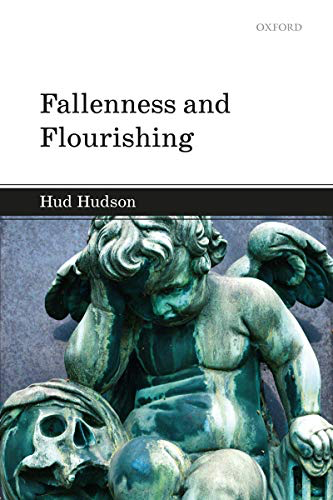
3:16: In your analytical theology/philosophy mode you have an interest in pessimism and its theological, Christian expression but think that independently of religious considerations philosophical pessimism is a powerful challenge. So could you explain what you take the main components of philosophical pessimism to be that you think even the non-religious should take seriously?
HH: The philosophy of pessimism is remarkably well grounded, quite independently of any particular religious orientation. The history of sentience and the tragedy of the animal kingdom, the rise of rationality and those individual, social, and political cruelties which are its children, the world’s art, literature, and wisdom traditions, and the all-too-frequently unhappy lives of its inhabitants to be found nearly everywhere and everywhen provide clear and compelling evidence in favor of a thesis of pessimism. Then again, no real reason to set religious considerations aside, since religion plays such a central role on the world’s stage and since much of religious thought and characterization of the human condition is uniformly pessimistic, as well.
For example, for the Christian who takes the doctrines of the Fall and Original Sin seriously, the philosophy of pessimism (i.e., before being tempered by the layer of optimism promised through incarnation and atonement) takes the form of a rather austere worldview according to which the local time and place (spanning the Fall to the General Resurrection) is a relentless tale of sin and corruption. And pessimism has its share of champions affiliated with and informed by Judaism, Islam, Buddhism, Hinduism and any number of other religious orientations, as well. To be clear the philosophy of pessimism need not be construed as the claim that the world is unrelentingly awful and all of its creatures irredeemable miscreants, and the philosopher of pessimism need not walk around in despair all the four seasons dampening everyone’s day and chasing children off lawns. The pessimism hypothesis does not have to engender any particular psychological profile in its adherents. Rather, at its core, the philosophy of pessimism simply offers (on the whole) dismal predictions about what nearly all of us can expect to experience in our private lives and interpersonal relationships, about the welfare of our fellow creatures, about the character of our social institutions and global politics, and about our prospects for progress on these matters in the future.
The philosopher of pessimism articulates and advances reasons in favor of or refutes reasons opposed to this general worldview, reasons which can include providing a psychology of the self, or a political theory of the state, or a religious take on the purpose (or lack thereof) of our lives, or even a grand speculative metaphysics of the cosmos. Many of history’s most eloquent poets and philosophers, tragedians and theologians, aphorists and political theorists have endorsed such a pessimism, and yet the view seems to me seriously underrepresented and underappreciated. I have come to suspect that the reasons for its unpopularity involve unflattering claims about human nature which place it at a disadvantage given our natural tendencies and learned talents for keeping such criticisms of ourselves at a safe distance. A substantial portion of my Fallenness and Flourishing is devoted to bolstering the case for pessimism and critically assessing the strategies for resisting this thesis together with their predictably unhappy consequences with respect to well-being.
3:16: You place a lot of weight on ‘obedience’ – that we shouldn’t trust our own powers but need to agree to rely on external power to overcome the pessimistic challenge. You start with Milton’s rebel angels – but surely Milton was of the regicide party and a Puritan dissenter. Surely this is a reason to think that obedience isn’t a virtue in itself, but that only obedience to the right thing makes it a virtue? Obviously in light of religion the believer will say ‘obedience to God’, but that’s not making obedience in and of itself a virtue is it? After all, obedience to The King is obedience but Milton wasn’t going for that! He was a rebel!
HH: Quite right. Advocating for obedience without engaging in serious qualification is even worse than that, I’m afraid. A call to obedience has figured as a terrifying symbol of some of the worst forms of oppression the world has ever seen. Usually, this occurs when obedience is demanded of one creature or group of creatures (whether united by sex or race or class or even mere vulnerability) by another creature or group of creatures who wield life-altering, worldly power over those recipients of the demand. That’s why I go out of my way to make a commotion over the fact that the relation I articulate and invoke under that label – by way of stipulative definition – can obtain only between a creature and God. If atheism is true, there is no relation of obedience as I use that term in the book. And if theism is true, the sort of obedience I defend as a virtue cannot relate one to one’s spouse, parent, warlord, monarch, pope, or any other creature (whether they claim to speak on God’s behalf or no).
Your reference to Milton is, nevertheless, appropriate in another sense. In Book V of Paradise Lost, Milton has Raphael say to Adam:
'Attend: That thou art happie, owe to God; That thou continu’st such, owe to thy self, That is, to thy obedience; therein stand. This was that caution giv’n thee; be advis’d.God made thee perfet, not immutable; Myself and all th’ Angelic Host that standIn sight of God enthron’d, our happie state Hold, as you yours, while our obedience holds;On other surety none.'
In Fallenness and Flourishing I attempt to unpack what is (roughly) Raphael’s sense of ‘obedience’ in this passage concerning a particular, four-faceted relation between a creature and God and to argue that it has a unique and crucial role to play in a compelling theory of happiness and well-being for human persons. Still, I recognize that trumpeting the virtue of obedience in the pursuit of happiness and well-being – that elusive pair of goods in which we all are inextricably invested – seems especially well-positioned to further solidify and bestow credibility on institutions of oppression already firmly in place, to equip the privileged with a time-honored tool for producing new patterns of oppression freshly sharpened with praise for its role in enabling human flourishing, to instill feelings of guilt and shame and responsibility in those who unjustly suffer at the hands of others on the grounds that their own commitment to obedience is thereby shown inadequate, and to license the harms of social injustice with the unassailable, buck-passing excuse that one is merely devoted to obedience and obedience makes its harsh demands.
Accordingly, I emphasize and focus on strategies designed to identify, prevent, and minimize such harms to vulnerable individuals and populations. It is worth noting a correct prediction of the philosophy of pessimism – that the threat of such harms is hardly unique and that any recommendation concerning well-being and happiness faces its own distinctive set of hazards and gambles. But it seems to me important to supplement a theory like this one with an investigation into the sort of dangers to which it is especially well-suited to give rise and to generate a plan for effectively combatting them.
3:16: So why do you connect secular striving for happiness and well-being with sloth, and why is this sloth so negative for you? After all, there are those, like Dr Johnson and slackers for example, who feel idleness – which I take to be a form of sloth – is a virtue.
HH: Well, although I must admit I like how the opposition has been referred to – in fact, it sounds like an evening of music I’d enjoy with Dean Zimmerman – I’m inclined to disagree with “Dr Johnson and the Slackers” that sheer idleness is a trait very worthy of aspiration; systematically cutting corners, or continually pampering oneself, or cultivating laziness really don’t have all that much going for them. But let us simply concede that there is a sense in which some version of idleness is a virtue. Still, sloth (the deadly sin or capital vice) is miles and miles away from the modern-day connotations of mere laziness or indolence or idleness. Sloth is a deadening and dangerous impoverishment of mind – a depression and a sadness which can overwhelm, compress, or even extinguish the normal range of one’s emotional responses to life. Sloth is a condition which carves out joy, leaving in its place a hollow and vacant indifference (even to items and activities one judges intellectually to be goods), and which gradually robs its victim of the capacity to fight her way back into happiness. In the tradition I am engaging, sloth is less a matter of enjoying the view, a drink, the warm rays of the sun, a gentle breeze, the knowledge that no one has any chance of finding you here hidden away for the afternoon on the shores of this glorious lake, and the realization that the lawn and the bills and the business of the world can all wait until tomorrow . . . and more Hamlet: 'I have of late, but wherefore I know not, lost all my mirth, forgone all custom of exercises, and, indeed, it goes so heavily with my disposition that this goodly frame, the Earth, seems to me a sterile promontory; this most excellent canopy, the air, look you, this brave o’erhanging firmament, this majestical roof, fretted with golden fire – why, it appeareth nothing to me but a foul and pestilent congregation of vapors.'
Historically, sloth was envisioned as an indifference to goods and a kind of deep despair and spiritual sorrow. Our world is crammed full of individuals who eventually – after striving for well-being and happiness and decisively failing to achieve those states – find themselves edging toward Hamlet’s frame of mind, recognizing value in the world and failing to respond properly to it, experiencing some partial paralysis of affect, suffering depression, and willfully resisting the duties of their relationships and the demands of love. In Fallenness and Flourishing I make the best case I can for that thesis of widespread failure and for the connection between such failure and the subsequent descent into sloth. Sloth is a misfortune with many faces, and in the book, I provide a literary tour of several of the more prominent ones. One can race from boredom into mindless diversions, or convince oneself that the world is at bottom absurd, or anguish over whether life is worth living at all, or give oneself entirely over to evil, or abdicate one’s agency and be ruled by chance, or frantically pursue the diminishing pleasures of sensual novelty, or attempt to explain one’s misfortune by appeal to some invented offensive or indifferent feature of God’s, or despair over a perceived spiritual deformity in oneself rooted in guilt or shame or mediocrity. All in all, when it comes to justifying the negativity, you were asking about in this question, those feel like pretty compelling reasons to me!
3:16: So, you have four components to your version of obedience – humility, restraint, response and love – which are of course Christian virtues. Can you say how these work together?
HH: Excellent question. Spoiler alert – I think of obedience as a theological virtue, insofar as it is directly concerned with God and engages the will in a distinctive manner, and so (unsurprisingly) God will make yet another prominent appearance in this answer. The virtue of obedience, as I envision it, is a combination of an abiding and deeply seated pro-attitude towards uniting one’s will with God’s will and a robust and stable set of dispositions aimed at combatting the state of mind of the individual Augustine might have characterized as a devoted inhabitant of the City of Man, an individual marked by a prideful adherence to a kind of perverted maxim: to wit – 'Where my will conflicts with God’s, I will nevertheless pursue my own desires and my own independence, even to the contempt of God and to the (earthly) ruin of my fellow creatures; thus, shall I seek my own good.'
In contrast, obedience involves the disposition to be alert to and on guard against our perpetual state of concupiscence which is daily fueled by excessive self-love and disguised by our prodigious talent for self-deceit. It involves the disposition to resist inflating and idolizing the lesser goods of pleasure, knowledge, and power in the world, especially when their pursuit conflicts with harmonizing our will with the divine will. It involves the disposition to commit oneself to God’s revealed word by faith, to persevere in the hope for the realization of the promises of that word, and to promote that realization in the exercise of charity through properly grounded love of God and neighbor. There are at least four distinct components to that description, each of which admits of degree, each of which is beset by problems of vagueness and borderline cases, and the totality of which can be co-present in an individual in different proportions.
There is a humility component – being disposed to recognize and to own our affective and cognitive limitations imposed by the condition of original sin and to be vigilant about the ways in which they can lead us into difficulty and error. There is a restraint component – being disposed to moderate our powerful inclinations to pursue inferior goods, to privilege our own interests, and to adopt double-standards in the evaluation of our thoughts, actions, and characters in comparison with those of others. There is a response component – being disposed to respond properly to the demands of love issued in the two great love commandments and thus to exercise the will in a direct confrontation with sloth which is the very condition of willed resistance to the demands of love. And finally, there is a component specifying a pro-attitude – ideally love – which is capable of being nurtured and strengthened, which itself involves an exercise of the will, and which is directed at the good of being united with God. As with the condition of grace, I think the possession of the virtue of obedience is compatible with a conflicted and fragmented will, with backsliding into sin, and with waxing and waning in sanctification. The dispositions and attitudes embedded in the virtue of obedience, however, work to maintain an openness to this second-order desire to conform one’s will to God’s, and once again, it is this (grace-enabled) condition of perseverance that comprises much of the contribution one can make towards cooperating in reconciliation, a contribution which God cannot wrest from us by force and upon which Raphael declared above our happiness depends.
Thus, the Prayer of Obedience – God, please help me to will to will the good and then to will what I will to will! ( – X.W.B.) – a request of God (offered in the humility of recognizing a need for assistance in the matter) to form the desires that engender appropriate resistance to those inferior goods which, when sought after at the expense of superior goods, leave those who ill-advisedly choose them mired in sloth and its resistance to the demands of love.
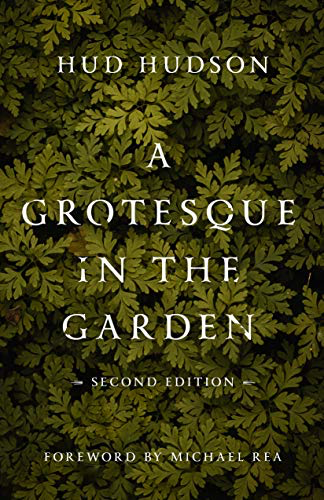
3:16: In your novel you not only write about sloth but also the question of evil. It’s hard for me to disagree with the Karamazov brother who sees the torture and death of a child as reasons for atheism. What’s your response to the challenge of terrible horror existing in a world governed by a being who could stop it but doesn’t?
HH: My little novel, A Grotesque in the Garden , is a story of two spiritual mistakes, each arising as a different manifestation of the classic deadly sin of sloth. The two main characters each manage to orchestrate their own ruin, and despite the fact that one is an angel, this is very much an Everyman story. With the slightest effort (I suspect) the reader will recognize some similarity between the inordinate self-love and systematic self-deceit which dominates the inner lives of both main characters and features of the reader’s own psychological profile. Or, if not, Augustine was wrong about the ubiquity of such sin, and the reader belongs to a very select minority, indeed! Despite the fact that both characters are unapologetic theists, criticisms of theism (Christian theism, in particular) form the primary subject matter that drives the story forward, beginning with the question you raise here.
My response to this first problem (and the response championed by the novel’s characters, as well) is a version of what is known as skeptical theism. The literature on skeptical theism is substantial and ever-increasing and easy to locate, but perhaps the primary move can be simply described as a blocking of an inference from the premise – “We are not aware of a state of affairs which serves as a compensating good or morally justifying reason for (as you put it) the terrible horror existing in the world” – to the quite distinct conclusion – “There is no such compensating good or morally justifying reason.” The centerpiece of the discussion is usually a critical evaluation of a bridge premise that reads – “If there were a compensating good or morally justifying reason for evil, E, then we would be aware of it and recognize it as a compensating good or morally justifying reason for E.” And the details, as you can imagine, are too varied in a literature this extensive to submit to a one paragraph summary. Still, although I find this defensive maneuver tremendously persuasive as a strategy for wholly undermining what I take to be the most popular versions of atheistic arguments I know, not all is well for the theist. For all its virtues, skeptical theism generates truly worrisome problems of its own which I will remark on in the following answer. One final quibble: Intriguingly, Ivan Karamazov does not present his example of the torture of one child whose tears are unrequited as a reason for atheism. As he tells Alyosha in that same chapter, “I accept God . . . moreover, I also accept his wisdom and his purpose, which are completely unknown to us, I believe in his order, in the meaning of life . . . it’s not God that I do not accept, you understand, it is this world of God’s created by God, that I do not accept and cannot agree to accept.” Thus far, Ivan presents as a dissatisfied, skeptical theist. “I don’t want harmony . . . I’d rather remain with my unrequited suffering and my unquenched indignation, even if I am wrong. Besides, they have put too high a price on harmony; we can’t afford to pay so much for admission. And therefore I hasten to return my ticket.” That is, as I read him, Ivan (the self-proclaimed theist) doesn’t wish to consent to live in a world in which the highest good would be achieved at the expense of harms that are suffered by some creatures who do not receive individual recompense for those harms now or in an afterlife to come.
Absolutely superb work in recent philosophy of religion (by Eleonore Stump in her Wandering in Darkness and Marilyn McCord Adams in her Horrendous Evils and the Goodness of God ) has focused on the issues that emerge from that way of reading Ivan in Dostoevsky’s “Rebellion” chapter, and those issues exercise the characters of my novel, as well. Another theme in the novel is one that Russell remarked upon – why is God so hidden? Why faith not knowledge? Why obscurity rather than clarity? After all, if traffic laws were as hidden and obscure, roads would be deadly. Some kinds of evil (if they are evil at all) exist only if God does – divine silence and divine hiddenness. Or, if disinclined to characterize them as evils, one might at least attempt to show that they are in tension with the features of being perfectly good or perfectly loving. This problem is absolutely central for my character, Tesque, the angel who has been consigned to guard the entrance to the Garden of Eden, only (as he sees it) to have been abandoned there for millennia, suffering isolation and loneliness, deprived of the social goods that he believes would make his existence worth having. Tesque is unfallen but alone and alienated, and we watch him wrestle with a number of theological problems that can (and should) confront even the most confident of theists, of whom Tesque is a definite representative.
My own view is that if divine silence and divine hiddenness are evils or in tension with God’s being perfectly good or perfectly loving, then there exists a compensating good or morally justifying reason among God’s divine purposes for permitting those states of affairs. I plead ignorance about what it is, and I turn once again to the position known as skeptical theism to block the move from that admission of ignorance to the quite distinct thesis that there is no such compensating good or morally justifying reason. Tesque isn’t as cautious as I am, though, and would like to add some speculations to that answer: “Why does God not engage us in a wide range of interpersonal interaction of the familiar sorts we value and enjoy with one another? Perhaps because His doing so, even for the briefest span, would so overwhelm and devastate us in such an unadulterated form that we would no longer be capable of interacting with one another. A flash of even moderately intense light can blind the eye and permanently impair the capacity of sight; how much more would unmediated interaction with God, interaction that the innocent foolishly cry and clamor for, impede every function they possess? God has no interest in reducing us all to idiocy. Why does God not comfort us adequately even with His mere presence in times of grief or sorrow or, barring that, with whatever diminished presence we can tolerate—as I suggested before, with His shadow? Perhaps He desires us to suffer in ways that are inscrutable but ultimately in our best interests to experience and overcome. Perhaps He foresees a great good in our seeking Him in certain ways or in our helping one another to seek Him and thus strengthening and improving ourselves and our neighbors. Or perhaps He foresees a great evil in those who would even more forcefully reject Him in their present state and lose their greatest good forever.
Finally, if I were forced to take sides with these guesses of your theologians and philosophers, I would hold with those who say He wants your rebellious kind to fully appreciate how awful things are when (with His absence) He reluctantly grants your fallen request to exist on your own terms without obedience to Him, all for the purpose of properly preparing you to cooperate in reconciliation through His mysterious plan of atonement.” But again, Tesque’s speculations are quite gratuitous. Given skeptical theism, there is no need to insist on any insight into the actual reasons in play. Still let me sound one troubling note on Tesque’s behalf. Skeptical theism, it turns out, is a two-edged sword, and Tesque finds a way to twist that incredibly powerful weapon for defeating arguments from evil to atheism into a skeptical puzzle facing the theist that is more of a threat to Christianity than any other problem I know.
3:16: Nietzsche is a formidable proponent of opposite values required for secular wellbeing. I wonder whether he is actually a bigger challenge to your position than secular well-being and happiness proponents – he’d agree with you that trying to keep the religious virtues without God is not going to work – which is basically your argument too isn’t it – but then he goes elsewhere and says we need to find value in things that acknowledge the post-God existential state. So he thinks self-deceit useful, and selfishness too. And cruelty. And hatred. How do you respond to this different challenge?
HH: A quick clarification first: my own view is not just that religiously oriented goods deserve a place on an objective list of the goods that make for human flourishing, and not even that some relation to God play a dominating role of a superordinate good on such a list, but rather that it plays a unique role with respect to the subjective side of the equation when the subjective conditions of readiness to flourish meet the objective ingredients for well-being. That is, in addition to contributing to well-being on their own, the religiously oriented conditions of flourishing also serve a kind of priming function which permits the other welfare goods to express their full range of value in a subject. This priming role of the virtue of obedience is the thesis I defend in Fallenness and Flourishing in response to what I take to be the astonishingly well-documented, widespread failure of secular attempts to achieve happiness and well-being.
But then again, perhaps those approaches have failed because their subjects haven’t attended carefully enough to Nietzsche and his lessons on the usefulness of self-deceit, selfishness, cruelty, and hatred. For the record, I know very little about Nietzsche, but a number of people whose intellectual judgment I respect immensely do know his work and think quite highly of him. So, what follows isn’t even an attempt at amateurish engaging of Nietzsche, but it does contain some observations about the four alleged lessons just mentioned. I find it hard to look about and think that my fellow human beings aren’t doing an adequate job of deceiving themselves and exhibiting selfishness, cruelty, and hatred – really throwing themselves into the part you might say. If happiness and well-being were to be had by those means, our world would be a happy place indeed. That’s a bit unfair, though. Surely, the view is that only the proper reforming of values and the judicious exercise of those traits can yield happiness and well-being in this – “our post-God existential state.” But even on this more charitable reading, I have two complaints.
The first is unsurprising and contentious: We don’t live in a post-God state. Theorizing about how to achieve happiness and well-being in an atheistic world is nevertheless fascinating, and I’m all for it – especially, since there are so many intriguing puzzles then on the table, given the vastly different views of ourselves and the world consistent with atheism. Similarly, it would be interesting to ask how we might best travel from New York to Washington State, given a post-land waterworld, despite the fact that we don’t live in a post-land waterworld either. I predict that comparison will strike some readers as outrageous, but the point is certainly not that atheism is as indefensible as the thesis that ours is a post-land waterworld. Far from it. The considerations for atheism are plentiful and sophisticated and forceful and far too formidable to be waved away casually. But the considerations for atheism are also not so overpowering that they cannot be confronted with sophistication and force, in turn. Nevertheless, the complaint can’t simply be that the theist believes that her theism can play a role in her general metaphysics or in her theory of well-being (for it is boringly obvious that one’s beliefs about what there is should play a role in one’s general philosophizing).
Rather, the worry must be that this particular belief about what there is fails to be justified or plausible or intelligible or whatever – and in fact so much so as to infect whatever discussions it intrudes into with the same feature. That’s a debate worth having, and I suspect it is a debate that can’t be dodged in the present context, given the centrality of theism in the particular theory of well-being in question. Accordingly, the first criticism more or less amounts to an invitation to revisit that old debate – we don’t live in a post-God state. The second complaint is more in the spirit of things. Suppose we did. Then the reasonable procedure, I would assume, would be to seek out the most satisfactory accounts of happiness and well-being (my own votes are cast for Daniel Haybron’s Psychic Affirmation theory of happiness defended in his excellent The Pursuit of Unhappiness and for some version of an objective-list theory of well-being for human persons) and then inquire (perhaps with Nietzsche’s guidance) how well-suited the tools of self-deceit, selfishness, cruelty, and hatred are to get us there. We can, of course, assemble a team in opposition, as well, featuring, say, Pascal on self-deceit, Augustine on selfishness, and centuries of stunning scholarship on the seven deadly sins which are so often expressed in cruelty and hatred, for a less optimistic view about whether even a shrewd and astute use of these strategies can lead to anything grander than the (apparent) increase of one’s own being at the (real) expense of another’s.
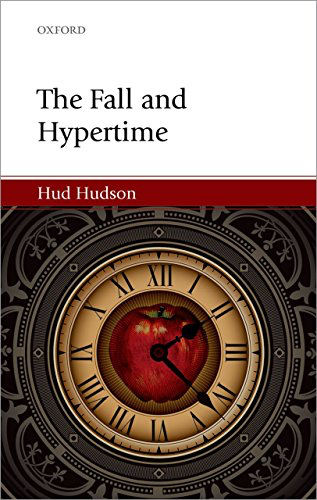
3:16: You make an argument that concludes that if we want to reject a religious commitment to taking the Garden of Eden, the Fall and Original Sin literally then we would need to reject certain metaphysical conclusions rather than point to scientific discoveries. Can you explain this, and is this a point that can be generalised to religious literalism? I wonder if this approach does actually capture what the apparently irreconcilable conflicts between science and religion are – I’d have thought the nonreligious challenge to religion is that the literal claims of religion happen to be false, not that they couldn’t have been true in another world?
HH: First, the generalizing point: Many of the alleged irreconcilable conflicts between religion and science are represented as akin to a match between a toddler and an 800-pound gorilla, with the suggestion that religion is about to be trounced once again and would be well advised to hang its head and slink away. Yet it seems to me that these conflicts invariably require supplementation by way of a piece of metaphysics that has not been adequately defended or even acknowledged. Absent the additional metaphysical thesis (which can usually be spotted doing some heavy lifting and masquerading as a bit of well-established science), it is usually possible to reconcile after all, and to do so without encroaching on the authority of genuine scientific discoveries or expertise. Once the controversial metaphysical underpinnings of the alleged irreconcilable conflict are identified, the gorilla disappears and the match turns out really to be a contest of metaphysics against metaphysics (or, if you like, toddler against toddler).
My book The Fall and Hypertime is an extended illustration of that claim whose centerpiece is a religious view I do not endorse – Genesiac literalism. Why that one? Because its dismissal has become so contemptuous that one is now informed only the most incurable rubes could believe in it and anyone in sympathy with the position must be irremediably stupid or perhaps simply wicked. I thought that was a bit high-handed, and that here (as elsewhere) unearned credit was being lavished on science alone while metaphysics stood offstage unrecognized. Allow me to say again that I don’t endorse such literalism – I’ve learned that if I don’t say it twice, it often isn’t heard – but the strategy was to show that if a respectable case for such reconciliation could be achieved even here , with a religious thesis so widely mocked and derided and regarded as furnishing a target a mile wide, then prospects for similar reconciliations that critically explored the metaphysics with which contemporary science and its deliverances are shot through would be promising, including debates, perhaps, where there is much more at stake.
That said, I did not regard the metaphysical adventures of that book as in any way frivolous. Its central moverests on the Hypertime Hypothesis, a hypothesis according to which there is a time-like series composed of hyperinstants each of which hosts a spacetime block. That is to say, a single hypermoment would be quite sufficient to contain the entirety of the four-dimensional spacetime (past, present, and future) in which we live and move and have our being, whereas hyperearlier and hyperlater hypermoments may contain remarkably diverse spacetime blocks of their own. Thus, the Hypertime Hypothesis, at first approximation, is something like a second temporal dimension, and the book is a serious exploration of the metaphysics, epistemology, and religious applications of this novel theory of time. Accordingly, just as we take ourselves (from some given orientation) to have a left and right, a front and back, a top and bottom, a past and future . . . so too, on the Hypertime Hypothesis (and on the assumption that we can persist across a hyperinterval), we can entertain the thought that we also have a hyperpast and a hyperfuture. And once the distinctions between past and hyperpast, future and hyperfuture are on the table, the observation that makes the Hypertime Hypothesis so potentially fruitful in the discussions in which it has been invoked is quite simply that whereas for each instant of hypertime, claims about what is true in the past and in the future (relative to some given moment) are fixed by facts about the single spacetime block present at that hypertime (i.e., by facts about the contents of its hyperplanes and their relative positions to one another) – claims about what is true in the hyperpast and the hyperfuture (relative to some hypermoment) are fixed by facts about the plurality of spacetime blocks spread out along a hyperinterval (i.e., by facts about their respective contents and their relative positions to one another).
It turns out that with that piece of metaphysical machinery in hand a reconciliation can be achieved that not only can be rendered theologically acceptable but also sports the extraordinary and delightful feature of being thoroughly consistent with the reigning scientific orthodoxy and with the current deliverances of astronomy, physics, geology, paleoanthropology, genetics, and evolutionary biology. Surprisingly – especially given what seems like its metaphysical extravagance at first glance – the primary advantages of the Hypertime Hypothesis are to be found in its metaphysical neutrality in a wide range of philosophical debates. Better yet, it is in a position to respond concessively to the deliverances of contemporary science without thereby losing any ground whatsoever. That is, even more impressive than its neutrality with respect to a wide range of metaphysical considerations is the Hypertime Hypothesis’s remarkable scientific flexibility which is prepared to countenance nearly any current feature or future development in science.
Your question noted that it would not be an adequate reply to an alleged conflict that the religious claims could merely have been true in another world. But for the record, that’s not what’s on offer. Like Lewisian Modal Realism, the Hypertime Hypothesis is significant largely in virtue of what it proposes to add to reality as opposed to contesting what this or that subfield of science has to say about the local (i.e., this spacetime’s) characteristics.
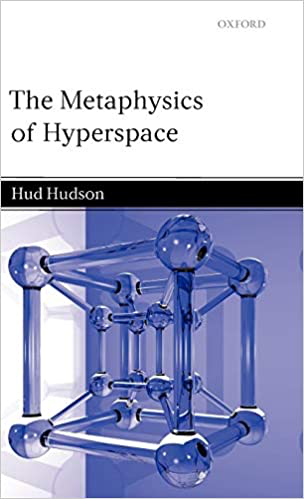
3:16: Given that you say that logical consistency doesn’t guarantee the bare metaphysical possibility of a four-space world and that it doesn’t guarantee that the four-space of the mathematicians has any interesting relation to the physical space we live in, why are you attracted to discussing this hyperspace and other non-Euclidean spaces and believe that it exists?
HH: Just for the sake of clarity let me acknowledge that we are now moving from talk of hypertime (discussed above) to my earlier work on hyperspace, which admittedly may seem like rather similar topics but which, in fact, are surprisingly and substantially different. My The Metaphysics of Hyperspace is a book about issues in the metaphysics of material objects loosely united by the theme of higher-dimensional spaces. It is convenient, of course, that spaces with more than three dimensions are not ruled out on logical or mathematical grounds alone, but simply clearing that bar doesn’t serve as much evidence in their favor. Reasons for endorsing higher-dimensional spaces are often found by working on problems to which postulating such spaces furnishes elegant and compelling solutions.
There is, of course, an impressive history of such speculation in physics, and I engage in a similar methodology but with an eye on philosophical puzzles. For example, even the possibility of hyperspace can play a significant role in thinking about the mind-bending puzzle of incongruent counterparts, and hyperspace has distinctive contributions to make in the debate between substantivalism and relationalism in the philosophy of spacetime, in the debate over what (if anything) is successfully demonstrated in the literature on the fine-tuning arguments, and in a delightful range of subjects in the philosophy of religion including the problem of the best possible world, conceptions of heaven and hell, and even providing responses to objections aimed at New Testament miracles and the doctrine of the general resurrection. Exploring the notion of hyperspace can also facilitate fruitful inquiries into the question of receptacles – i.e., which regions of spacetime can host material objects, into the topological features of material objects, into the perplexities of the boundaries of material objects, into the proper analysis of contact for material objects (and related puzzles exploiting infinite sequences of material entities), into the metaphysics of the occupation relation between a hosting region and a material guest . . . I mean, what’s not to love?!
3:16: When talking about composition and decomposition of objects, why is Universalism so important to you? (And what are simples and gunk?)
HH: The terms ‘simple’ and ‘gunk’ are commonly used in the discussion of the mereology of material objects. A material simple would be a material object which does not have any proper parts, whereas (a hunk of) material gunk would be a material object each of whose proper parts has further proper parts. Accordingly, if some material item is gunky (as they say), then it doesn’t contain any simples among its parts. Questions such as “Are there any material simples?” or “Are there only material simples?” or “Are hunks of material gunk so much as metaphysically possible?” may sound like they have obvious answers (until you start learning about the objections to the so-called obvious answers) or may sound like they have answers that couldn’t make much of a difference to anything that might concern you (until you start learning about just how many debates are intertwined with mereological metaphysics). You may think you’ve signed up for one discussion, but in no time at all you’re immersed in a dozen.
You ask about Universalism, which is the name of a thesis about composition, another subfield of inquiry in the mereological metaphysics. Ask the innocent question – “When do a plurality of objects have a fusion (or, more informally, under what conditions are things parts of some further thing)?” The answers range from ‘always’, to ‘never’, to ‘whenever condition F is satisfied, which it is by some pluralities but not by others’ (with lots of creative suggestions for substitutions on ‘F’). Universalism is the ‘always’ answer: Roughly, it doesn’t matter what spatiotemporal or causal or other relations some things happen to satisfy, so long as they co-exist, there is always a least inclusive thing that has each of them among its parts.
I hadn’t really thought about the question “Why is Universalism so important to you?” before this exchange. If I hadn’t been writing down an answer, I probably would have just replied that it was no less or no more important to me than other theses that upon reflection and investigation seem to me to be true in metaphysics. But after spending a little time on it, one reason it stands out as special in my judgment is that it furnishes such a crystal-clear case of the following observation. There are some areas in metaphysics where the questions are relatively easy to formulate and get your head around, yet all of the most promising responses to those questions have consequences that appear to be simply outrageous. This is true, for example, of The Problem of the Many, of the nature of vagueness, of the metaphysics of persistence, and of the question to which Universalism is an answer, the question of composition.
Endorsing Universalism is a kind of glass-house position; it’s unwise to take up residence there and then lob the complaint against someone else’s metaphysics that it’s surely false because of its ridiculous and counterintuitive implications. Every significant metaphysical view seems to win that award when subjected to careful scrutiny, an observation which complicates (to say the least) the process of selecting among philosophical views or, if selecting is the wrong model, of critically evaluating the views one finds oneself believing.
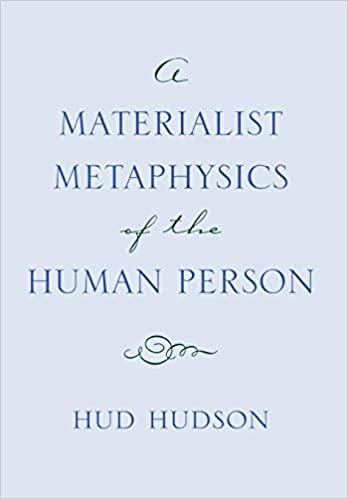
3:16: To which spacetime worms does our term ‘human person’ refer – and why is The Problem of the Many so important to your way of answering that question?
HH: I’ll take a shot at the first half of that in my response to the next question, but let me here say something quick about The Problem of the Many which was the source of something like an intellectual crisis for me (or so it seemed back then)! I vividly remember getting curious about and then mesmerized by and then obsessed with that problem. It can be crisply formulated (in a few different ways) as a reductio on a handful of pretty straightforward and popular theses (which made it difficult to brush aside as a pseudo-problem), and I became convinced that it was an underestimated and underappreciated bit of philosophy. I suspect this was largely because it was not generally recognized that it presented a mystery entirely different from those posed by the other mereological puzzles and thus was not likely to be resolved as a byproduct of solving them. The philosophical costs of the solutions were enormous, and I spent many happy hours doing my best to systematically catalog them.
About a quarter of my book A Materialist Metaphysics of the Human Person is given over to a critical discussion of the many problematic solutions to The Problem of the Many. I’m not satisfied with any of them still, but one valuable lesson I believe I took away from wrestling with that wonderful problem was grasping the significance of the study of occupation relations when working on the nature and behavior of material objects. A great deal can be accomplished with the tools of mereological metaphysics, but those tools need to be supplemented with theories about how objects occupy the spacetime regions that host them.
3:16: How do your metaphysical commitments about parthood, persistence, vagueness, composition, identity and the puzzles of material constitution you’ve just been discussing help us understand your materialist conception of what a person is, and what implications the position has in terms of our morality (e.g., foetuses and corpses) and religious beliefs (e.g., resurrection, reincarnation) – and whether persons are animals?
HH: Those particular commitments constitute a certain metaphysical package with philosophical implications aplenty, but the one salient implication that is crucial to responding to your question is an ontological one. With exceedingly liberal theories of composition (like Universalism, according to which any plurality has a fusion) and similarly liberal theories of decomposition (like the Doctrine of Arbitrary Undetached Parts, according to which an extended thing has a distinct part in each subregion of the region it occupies), you have a lot of objects on the scene at any given time. Far, far more than you would have if, for example, there were no genuine composite things but only simples acting in concert, or if there were extended simples without proper parts to occupy any of the interior regions of the places in which those extended simples were located. Moreover, with analogously liberal accounts of persistence (like Temporal-Parts Theory, according to which an object persists throughout an interval of time by having a distinct temporal part at each moment of that interval) the sheer number of distinct material objects continues to balloon. Far, far, more than you would have if, for example, an object persisted across an interval of time by way of reappearing as a whole at each of its different moments instead of being partitioned into temporal parts. It matters.
If your theories of composition, decomposition, persistence and the rest leave you with very few, largish material objects in the vicinity of the armchair in which you are currently seated, it may be a remarkably easy matter to say which of the world’s material objects is identical to you, and which are the human persons in general, and whether you spent any part of your career undergoing stages of prenatal development as a fetus, and whether you will spend part of your career in a non-living state as a decomposing corpse. When the possible candidates are narrowed down sufficiently by way of a sparse ontology, it’s a relatively simple task to apprehend your suspect. But when faced with a robust ontology, the problem explodes. Even if you help yourself to the plausible thesis that there is exactly one human person currently in your armchair (and for what it’s worth, The Problem of the Many manages to dog that reasonable assumption), just which of the infinitely many, numerically distinct, apparently qualified candidates is it? There’s only one you, but several distinct items that differ from you mereologically by one more or one less electron in the vicinity of your left hand. There’s only one you, but several distinct items that share nearly all your parts, yet which either perish before you or else outlive you by a fraction of a second.
In short, if your general metaphysics leaves you with several extremely plausible candidates for being, say, the one and only human person in your armchair at the stroke of midnight, you are in need of an elimination principle which will reject some of those candidates when paired with others as less qualified for the job. I am certainly a fan of such a general metaphysics and consequently countenance many such plausible candidates. In my A Materialist Metaphysics of the Human Person I did my best to articulate and defend elimination principles that would render such ontological robustness consistent with plausible pre-theoretical commitments of the there-is-only-one-person-in-your-armchair-right-now variety. At the end of the day, I argued that the best elimination principles delivered the verdict that we can always find a better candidate for a human person than a human animal (or biological organism).
“To which spacetime worms does our term ‘human person’ refer?” Given the rich resources of the liberal theories of composition, decomposition, and persistence, it refers not to a human animal but to a mere proper part of a human animal, i.e., to a spatial part of a temporal part of a human animal, i.e., to something both within the lifespan and beneath the skin of a human animal, as it were. Such a conception has further implications, as you indicated in your question, for the ethics of pre-and post-person stages in a human organism, and for religious doctrines like resurrection and reincarnation, but those are longer stories. One final observation on this theme. It can seem outlandish, I think, to be told that you are not a human animal. How could materialism for human persons be true and Animalism false? Well, maybe it isn’t. Maybe my metaphysical views have led me down the wrong path on this question. But before you confidently assume you are a human animal after all, on the grounds that it is outlandish to think otherwise, let me encourage you to look carefully into the philosophical costs of maintaining Animalism.
Adherence to that thesis, I am convinced, is much more widespread than is adherence to the carefully crafted collection of metaphysical views that it requires in its support, views which can certainly hold their own when it comes to having bizarre consequences. But we’re in glass-house territory again. I’ll close this thought by nodding to three excellent philosophers who pay the exorbitant costs of a consistent Animalism (in different ways) and who prefer its consequences to the ones sketched above – Peter van Inwagen (in his Material Beings), Eric Olson (in his The Human Animal ) and Trenton Merricks (in his Objects and Persons ). If I were to learn that my take on this question is mistaken, I suspect I would sign up for something like an Olsonian view, but in doing so I would surely be trading one outlandish view for another.
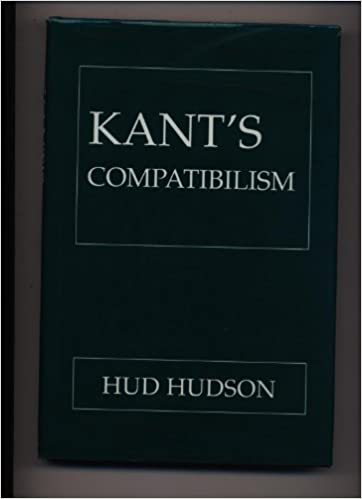
3:16: Are you a Kantian compatibilist about freewill and determinism?
HH: Yes***, but with a three-asterisk qualification, as you can see. The first qualification: I think it is worth specifying which of the many determinisms (global and local) is at issue, since one can consistently defend compatibilism about causal, microphysical, foreknowledge, and character determinisms, for example, while advocating for incompatibilism about mereological, mirror, surface, and noumenal determinisms.
My book on Kant concerned his causal compatibilism exclusively. I, too, am a causal compatibilist, but (unlike Kant) not also a causal determinist. The second qualification: Kant endorsed causal compatibilism from his very first pre-critical publication to the end of his days, but many of his most sympathetic commentators have themselves favored incompatibilism; moreover, many of the many (in my judgment) were incompatibilists who couldn’t bear to see their hero go wrong on such an important matter, and who engaged in real intellectual acrobatics to save Kant from himself on this issue, finding creative ways to suggest either that he wisely reversed course later in life or never really meant what he seemed (frustratingly) to say so very often with such conviction. I have argued that Kant’s position was amenable to the best contemporary versions of compatibilism now on offer, which serve as an adequate response both to his opponents and to his interventionist friends without threatening the particular set of reasons for accepting causal determinism defended in his Critique of Pure Reason.
Whereas I don’t endorse that set of reasons for causal determinism and whereas I don’t share Kant’s skepticism about how little we can know about our own freedom, I do share the compatibilistic thesis that renders his views consistent with one another. The third qualification: Although it remains above the threshold for belief, I don’t have the degree of confidence in that thesis that I did at twenty-six. Kant’s Compatibilism was my first book, and I suspect I had the experience of confusing finally understanding an issue well enough to make a contribution to its literature with taking the position I defended to be less vulnerable than it surely is. Many of the best thinkers I know continue to be split on the topic, and I like to hope that my decrease in confidence represents an increase in appreciation for the topic’s subtleties.
3:16: And finally, for the readers here at 3:16, are there 5 books other than your own that you can recommend to take us further into your philosophical world?
HH: 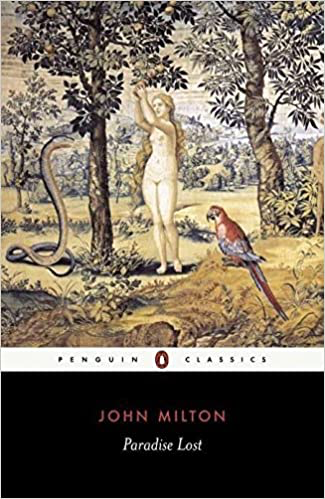
John Milton’s Paradise Lost I’ve never had to break from reading to catch my breath until I encountered Paradise Lost . I’ve finished passages and paused, compelled to think – “ I’ve never read anything so stunning in my entire life ” – and then, a few pages later, put the poem down obliged to think that thought again. In his critique of Milton, Samuel Johnson hit the mark: “The characteristic quality of [Milton’s] poem is sublimity. He sometimes descends to the elegant, but his element is the great. He can occasionally invest himself with grace; but his natural port is gigantic loftiness. He can please when pleasure is required; but it is his peculiar power to astonish.” I continue to be astonished. This is the finest work of art that I know, and it is simply brimming over with philosophical content.
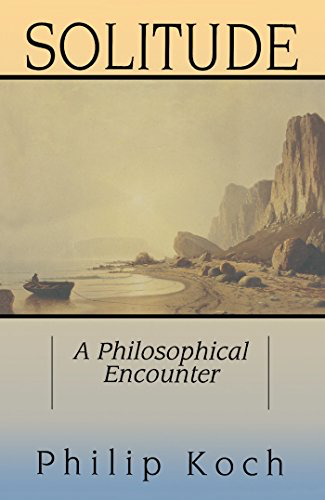
Philip Koch’s Solitude In response to – “How do you identify?” – we hear all sorts of answers. For example: As a . . . Conservative Trans Woman Pacifist Native American, Veteran Buddhist Feminist Vegan Olympian, Millennial Goth-Punk New Yorker' I think it is intriguing to ask why we privilege some groups over others we belong to by identifying with them in a public way and what we assert of ourselves (literally) and what we signal to one another (conventionally) by doing so. Sometimes I’ve invited others to play the five-identities challenge, an exercise in which you offer a self-report on the five identities that rise to the top of your own unique list. My own effort – fallen, solitary, contemplative, melancholy, aesthete. I am convinced that acquiring a solid answer to this question can reveal a good deal about one’s firmest intuitions, one’s intellectual temptations, one’s personal fears and obstacles, and one’s theoretical tastes and proclivities, all of which appreciably inform one’s philosophical activity and philosophical convictions. I am thankful to Koch’s lovely book, Solitude , for helping me to understand that ‘solitary’ belongs in my answer (rather than ‘misanthropic’, which is how insufficient access to solitude can announce itself) and for deepening my understanding of and appreciation for the role that solitude plays in happiness and well-being.
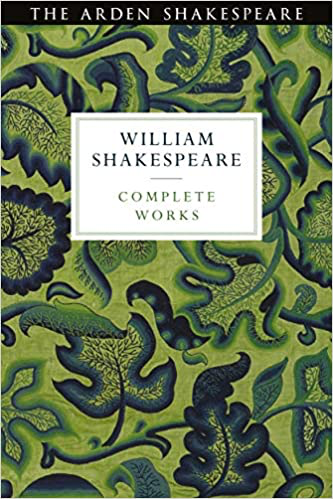
William Shakespeare’s The Complete Plays I realize others have used this opportunity to champion classic and contemporary philosophical texts that have played a role in their own philosophical development, but I think that whereas I have been educated in philosophy by such books and their authors, my inspiration for selecting projects to work on and my motivation for seeing them through often rests on literature. I am awestruck by Shakespeare, and I had the delightful experience of reading through all the plays (and viewing at least one production for each) during the long summer months of 2021. How is it possible that one person had such penetrating insights into so many aspects of the human experience and also the talent to portray them so gorgeously? That summer project was an intensely satisfying reminder of why I like to read – for brilliant insights into the human condition clothed in breathtaking language that can inspire and guide philosophical reflection. If I could give advice to my earlier Shakespeare-reading self it would be this: “Change your pace. Crawl through the text. It contains more than you’ve noticed.”

Hermann Hesse’s The Glass Bead Game. Hesse wrote the same novel several times, or so it seems to me, but The Glass Bead Game is its best incarnation. The novels frequently present somewhat exaggerated characters who are living very different lives – one an intellectual, monkish, academic, ivory-tower resident (hermiting it away at a safe remove from the hustle and bustle of the marketplace) and one a family-oriented, career-minded, politically-active, citizen of the world (with sufficient natural talent for intellectual pursuits but not leisure time enough to develop that talent after the firewood has been brought in and the day’s business transacted). Yet Hesse puts speeches in the mouths of these characters which are absolutely brilliant critiques of the other character’s choice of pattern for a life. I clearly have chosen one of the two patterns, and I have found Hesse’s critiques of its shortcomings challenging and sobering and a source of wisdom about how to avoid some of its pitfalls. In particular, the novel forcefully teaches one lesson that I think it wouldn’t hurt a number of middle-aged academics to learn about regaining the freedom that it is so easy to give away piece by piece over the course of a career because they’ve said ‘yes’ too quickly and too often to projects and duties, assignments and positions that they don’t really want and that interfere with their real preferences and goals – all because someone correctly identified them as having successfully developed the skills to bring that particular project or duty or assignment to completion with real distinction.
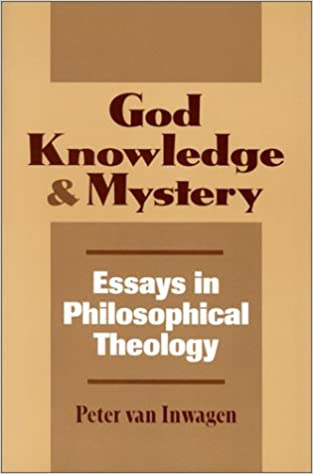
Peter van Inwagen’s God, Knowledge & Mystery Peter is a friend, and although I never had him as a teacher and disagree with him about nearly everything but our common theism, I think I’ve learned more from him about doing philosophy than I have from anyone. I could have easily cited his An Essay on Free Will or his Material Beings , each among the very finest books in contemporary analytic metaphysics during the years I was cutting my teeth as an undergraduate and graduate student, but I have a special fondness for God, Knowledge & Mystery , a little collection of pieces in philosophical theology that played a significant role in my conversion to Christianity a quarter-century ago. van Inwagen’s writing always resonates with me – the creativity, the philosophical depth, the brilliant style, the scrupulously careful attention to phrasing, the sheer intellectual power on display – and these excellent essays were among my first lessons in how serious and rigorous and compelling philosophical theology could be.

ABOUT THE INTERVIEWER
Richard Marshall is biding his time.
Buy his second book here or his first book here to keep him biding!
End Time series: the themes
Huw Price's Flickering Shadows series.
Steven DeLay's Finding meaning series
Josef Mitterer's The Beyond of Philosophy serialised
NEW: Art from 3:16am Exhibition - details here